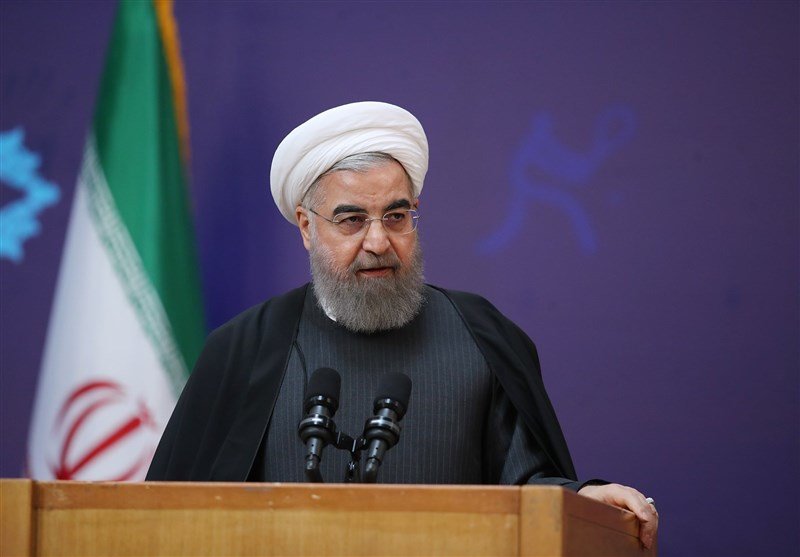Top economists urge nation to vote for incumbent government

TEHRAN – Dozens of top Iranian economists issued a public statement on Friday urging the nation to elect incumbent president Hassan Rouhani for a second term, citing heavy costs incurred by the Ahmadinejad administrations from 2005 to 2013.
“We vote for Dr. Hassan Rouhani in the 12th presidential election though we have serious criticism about economic policies of the outgoing administration,” the statement read.
Iran will hold presidential election on May 19. More than 55 million are eligible to vote, out of whom nearly 1,200,000 are first-time voters.
The 50 signatories included nationally-known university professors and economy researchers such as Farshad Momeni, Mohammad Sattarifar, Mohsen Ranani, and Hossein Raghfar.
The Rouhani administration, which took office in August 2013 at the height of U.S.-led economic sanctions, has managed to cut an annual $30 billion costs incurred by inappropriate policies adopted under Ahmadinejad, to clinch the historic 2015 nuclear deal, to curb smuggling as much as $10 billion, to rein inflation, and to diminish reliance on agro imports to a half, according to the statement.
Outgoing 69-year old Rouhani, who is seeking a second term, faced vehement criticism over his administration’s economic performance during three live electoral debates.
Out of the six presidential hopefuls, three principlist ones rapped the moderate president for low employment, lack of financial transparency, stagnation, and corruption, branding the government as “the government of aristocrats.”
Ebrahim Raisi, one of Rouhani’s rivals, vowed to triple cash handouts paid to the needy while Bagher Ghalibaf promised to create five million jobs if made president.
This is while the economists rejected the promises, warning that economic ails will escalate, equality gap widen, and insecurity result if any government other than the incumbent one win the upcoming election.
Days ago, 170 lawmakers also endorsed Rouhani as favorite candidate, emphasizing that “publicizing shock therapy policies will cause inflation to soar, currency market to destabilize, and other economic variables to fluctuate.”
In making the comments, the parliamentarians were referring to former President Mahmoud Ahmadinejad who bequeathed to his successor an “empty national treasury”, a systemic financial crisis, and negative economic growth.
In a recent report, Iran posted its strongest quarterly economic growth over in more than a decade, where growth rose to 7.4 percent.
In its January report, the World Bank, in its recent report titled Global Economic Prospects, forecasted a 5.2 percent gross domestic product (GDP) growth for Iran in 2017.
The report put the country’s GDP growth at 4.6 percent in 2016, while it predicted 4.8 percent and 4.5 percent growth for the country in 2018 and 2019, respectively.
The Rouhani administration has particularly devoted substantial energy to curbing inflation, vital for the ailing economy which indicated signs of a rebound on the back of the international nuclear deal.
The country’s inflation declined to single digits and has hovered in the 9.5 percent range, year-on-year, since mid-2016.
It is expected to temporarily rise to 11.9 percent by end-2017/18 reflecting recent liquidity growth and pass-through from exchange rate depreciation, before returning to single digits on the back of prudent fiscal and monetary policies.
AK/PA
Leave a Comment